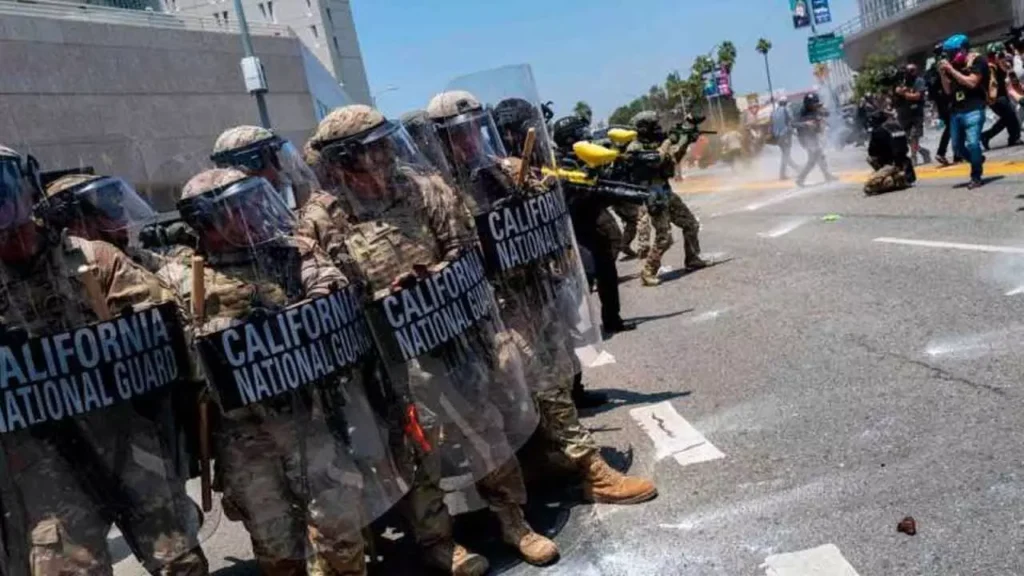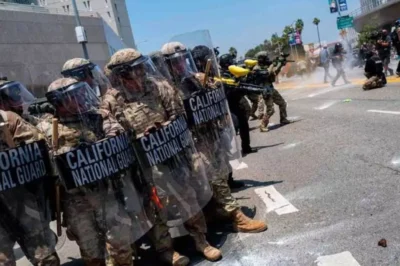
Intensifying Unrest in Los Angeles
Protests have erupted across the United States in response to President Donald Trump’s aggressive immigration enforcement policies, particularly focusing on recent Immigration and Customs Enforcement (ICE) raids. The most significant unrest has occurred in Los Angeles, where demonstrations escalated into clashes with law enforcement. In response to the growing unrest, city officials imposed a curfew and deployed riot police to manage the situation. Despite these measures, thousands of protesters gathered, some engaging in acts of vandalism and clashing with authorities. President Trump characterized the protesters as a “foreign enemy” and authorized the deployment of 4,000 National Guard troops and 700 Marines to Los Angeles, overriding state and city leaders who deemed the intervention inflammatory.
Nationwide Demonstrations and Federal Response
The protests quickly spread to other major U.S. cities, including New York, Chicago, San Antonio, Seattle, and Minneapolis. Demonstrators, many voicing support for immigrants and carrying flags from Latin American nations, accused ICE of illegal targeting. In response to the escalating protests, federal law enforcement agencies cracked down on demonstrators, making arrests and using tear gas in some instances. California Governor Gavin Newsom criticized President Trump’s decision to deploy military forces, filing for a restraining order to block military involvement in immigration enforcement. The Trump administration defended the military presence, claiming it was necessary to prevent greater destruction.
Legal and Political Implications
The deployment of military forces in Los Angeles has raised significant legal and constitutional concerns. Governor Newsom described the military response as premature and politically motivated, filing a lawsuit to halt the deployment. The legal battle is ongoing, with a court hearing scheduled to address the issue. Additionally, President Trump has hinted at invoking the Insurrection Act, which would grant him broader authority to deploy military forces within the United States. This potential move has sparked debates about the balance of power between federal and state governments and the appropriate use of military force in domestic affairs.
Impact on Immigrant Communities
The aggressive immigration enforcement policies have instilled fear within immigrant communities across the country. Many individuals are hesitant to seek medical care, attend school, or report crimes due to the fear of deportation. Advocacy groups have mobilized to provide support and resources to affected individuals, including legal assistance and safe spaces. The ongoing unrest underscores the deep divisions within American society regarding immigration policies and the treatment of undocumented immigrants.
Looking Ahead
As the situation continues to unfold, the nation faces critical questions about the balance between national security and individual rights, the role of federal versus state authority, and the treatment of immigrant populations. The outcome of the legal challenges and the public’s response to the ongoing protests will likely shape the future of immigration policy and enforcement in the United States. For now, communities remain on edge, awaiting developments that could have lasting implications for the nation’s approach to immigration and civil liberties.








































Leave a Reply